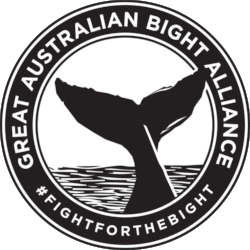Social and Economic Risks in the Great Australian Bight
There is serious cause for concern for the potential impact of a similar oil spill disaster and also the cumulative oil industry activities in the Great Australian Bight.
Laurent Lebreton notes a number of important economic values of the region that would be directly threatened by an oil spill (this mainly refers to South Australia, while values in Western Australia, Victoria and Tasmania are also threatened):
During 2012-2013, the total volume of production of South Australia’s commercial wild fisheries was worth an estimated $199 million per year – the main commercial fisheries are abalone, blue crab, marine scalefish, pipi, prawn, rock lobster, sardine and charter boat. The aquaculture industry was estimated to contribute nearly 55% of the state’s total value of seafood production in 2012-2013 with $243 million per year, of which Tuna accounted for 63%.
Tourism is a major contributor to the economy in the region, with a combined $1.2 billion per year for 2013-2014. Employment from the tourism industry in the region containing marine parks is estimated to directly and indirectly account for nearly 10,000 full-time equivalent jobs.
The creation of highly protected marine ecosystems is expected to further provide a strong base for developing ecotourism in South Australia in the longer term by supporting the growth of activities such as whale and dolphin watching, shark watching, scuba diving and boating.
In a recent study, the “Great Southern Reef” covering an area of nearly 71,000km2 along more than 8,000km of temperate coastline across South Australia was estimated to generate $10 billion per year in fishing and tourism related activity.
Extraordinary Tax Breaks Provided in the Great Australian Bight
In considering the potential social and economic impacts of oil and gas exploration proposals for the Great Australian Bight, it is important to understand the public subsidies supporting these risky frontier exploration activities. It is our understanding that three of the four exploration permit areas held by BP in the Bight Basin were “Designated Frontier Areas” when they were released in 2009. Under s36B and 36C of the Petroleum Resource Rent Tax Assessment Act 1987 (PRRT Act), exploration expenditure incurred in these designated frontier areas is eligible to be deducted from the explorer’s PRRT Act taxation liabilities at a rate of 150%. We understand this to mean that for every $1 BP spends on eligible exploration activities in these areas, $1.50 can be deducted for PRRT purposes.
- taken from The Wilderness Society Submission to the Senate Inquiry into Gas and Oil Production in the Great Australian Bight
The public simply should not subsidise such highly risky oil development activities.
